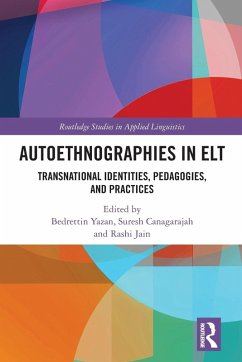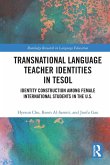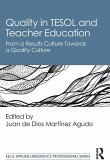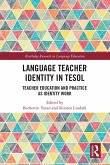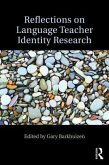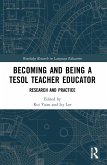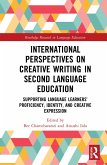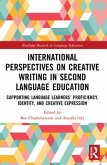This innovative volume showcases the possibilities of autoethnography as a means of exploring the complexities of transnational identity construction for learners, teachers, and practitioners in English language teaching (ELT). //The book unpacks the dynamics of today's landscape of language education which sees practitioners and students with nuanced personal and professional histories inhabit liminal spaces as they traverse national, cultural, linguistic, ideological, and political borders, thereby impacting their identity construction and engagement with pedagogies and practices across different educational domains. The volume draws on solo and collaborative autoethnographies of transnational language practitioners to question such well-established ELT binaries such as 'center'/'periphery' and 'native'/non-native' and issues of identity-related concepts such as ideologies, discourses, agency, and self-reflexibility. In so doing, the book also underscores the unique affordances of autoethnography as a methodological tool for better understanding transnational identity construction in ELT and bringing to the fore key perspectives in emerging areas of study within applied linguistics. //This dynamic collection will appeal to students, scholars, and practitioners in English language teaching, applied linguistics, TESOL education, educational linguistics, and sociolinguistics.
"This volume, an enjoyable read, lays out appealing stories of individuals engaged in the labor of destabilizing and negotiating their transnational and transcultural identities. The chapter narrators shine a light on ways that questions of belonging, community, connection, and identity are constituted and thrown into question against a backdrop of their own pedagogies, disciplines, and practices. Curling up with this book left me hopeful about the promise held by the proposed concept identity-as-methodology in the hands of reflective, agentive practitioners such as this group of authors."- Suhanthie Motha, University of Washington
"The editors of this book have curated a stunning collection of autoethnographies, which capture the emotional, social and psychological twists and turns of living and working in transnational spaces. The narrative content is immensely readable and interesting, as well as being theoretically informed. Anyone interested in innovative methodological approaches to exploring identity should read this book." - Gary Barkhuizen, University of Auckland
"In ELT, there is a growing desire for communities and methodologies of inquiry capable of traversing national, ideological and disciplinary boundaries. The potential for autoethnography to address such concerns is fully explored in this insightful book. With its rich diversity of perspectives and settings, and its attention to emotion and identity work, this inspiring collection is a most welcome resource for those seeking to transform old habits of thought and practice in second/additional language learning settings." - Brian Morgan, Glendon College, Toronto
"The editors of this book have curated a stunning collection of autoethnographies, which capture the emotional, social and psychological twists and turns of living and working in transnational spaces. The narrative content is immensely readable and interesting, as well as being theoretically informed. Anyone interested in innovative methodological approaches to exploring identity should read this book." - Gary Barkhuizen, University of Auckland
"In ELT, there is a growing desire for communities and methodologies of inquiry capable of traversing national, ideological and disciplinary boundaries. The potential for autoethnography to address such concerns is fully explored in this insightful book. With its rich diversity of perspectives and settings, and its attention to emotion and identity work, this inspiring collection is a most welcome resource for those seeking to transform old habits of thought and practice in second/additional language learning settings." - Brian Morgan, Glendon College, Toronto
"This volume, an enjoyable read, lays out appealing stories of individuals engaged in the labor of destabilizing and negotiating their transnational and transcultural identities. The chapter narrators shine a light on ways that questions of belonging, community, connection, and identity are constituted and thrown into question against a backdrop of their own pedagogies, disciplines, and practices. Curling up with this book left me hopeful about the promise held by the proposed concept identity-as-methodology in the hands of reflective, agentive practitioners such as this group of authors."- Suhanthie Motha, University of Washington
"The editors of this book have curated a stunning collection of autoethnographies, which capture the emotional, social and psychological twists and turns of living and working in transnational spaces. The narrative content is immensely readable and interesting, as well as being theoretically informed. Anyone interested in innovative methodological approaches to exploring identity should read this book." - Gary Barkhuizen, University of Auckland
"In ELT, there is a growing desire for communities and methodologies of inquiry capable of traversing national, ideological and disciplinary boundaries. The potential for autoethnography to address such concerns is fully explored in this insightful book. With its rich diversity of perspectives and settings, and its attention to emotion and identity work, this inspiring collection is a most welcome resource for those seeking to transform old habits of thought and practice in second/additional language learning settings." - Brian Morgan, Glendon College, Toronto
"The editors of this book have curated a stunning collection of autoethnographies, which capture the emotional, social and psychological twists and turns of living and working in transnational spaces. The narrative content is immensely readable and interesting, as well as being theoretically informed. Anyone interested in innovative methodological approaches to exploring identity should read this book." - Gary Barkhuizen, University of Auckland
"In ELT, there is a growing desire for communities and methodologies of inquiry capable of traversing national, ideological and disciplinary boundaries. The potential for autoethnography to address such concerns is fully explored in this insightful book. With its rich diversity of perspectives and settings, and its attention to emotion and identity work, this inspiring collection is a most welcome resource for those seeking to transform old habits of thought and practice in second/additional language learning settings." - Brian Morgan, Glendon College, Toronto

